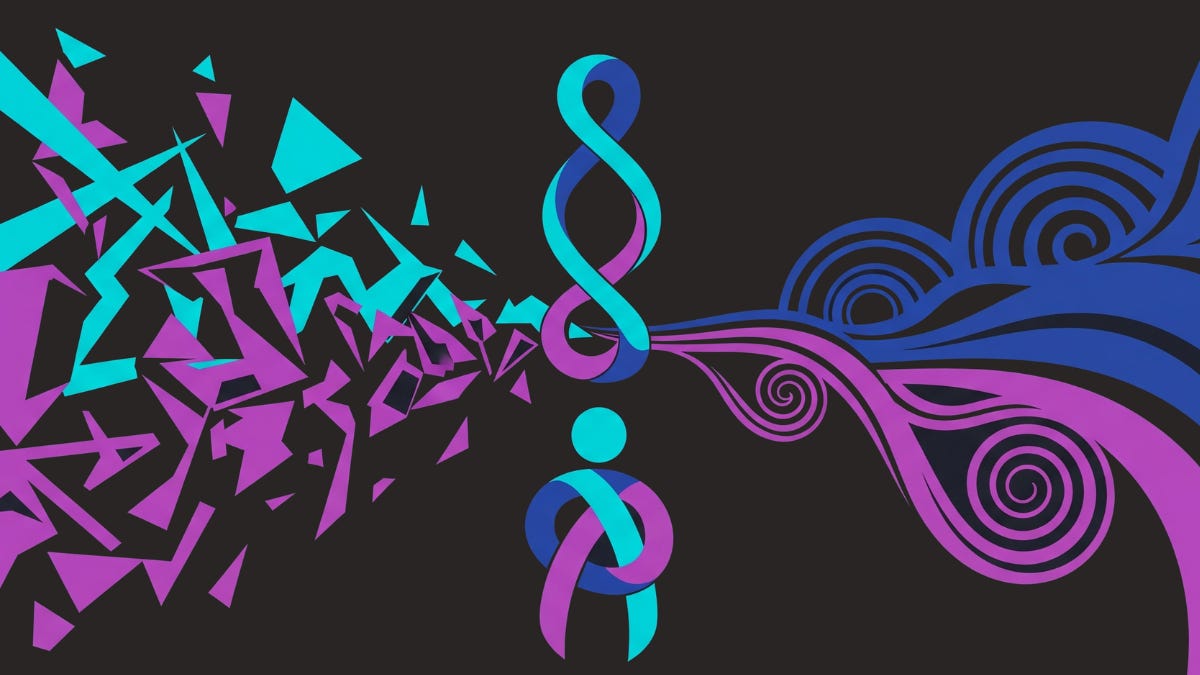Humans After AI: Humans After All.
Exploring how synthetic intelligence forces us to rethink our role in society.
The beauty of the AI topic is that it sits at the intersection of fear and excitement.
A down-to-earth line of reasoning often leads to fear: what if AI takes my job tomorrow?
Far be it from me to predict the future, but like every breakthrough before, there will be a transition before we find a new equilibrium. What makes this moment extraordinary is that, for the first time in human history, technology is pushing us to fundamentally reinvent our role in society.
Of course, past revolutions also transformed how humans lived and worked, often radically. The Industrial Revolution, for instance, uprooted traditional livelihoods and reshaped urban landscapes. But even then, technology extended human labour and agency rather than competing with the essence of human cognition itself. With AI, we might be facing a different kind of shift.
Historically, technology sat on the periphery of our lives, designed to make existence easier, simpler, more convenient. Some innovations then became so pervasive they started replacing humans, without truly displacing us. Throughout it all, our place at the top of the food chain was never seriously threatened.
Now, we must consider the possibility that another form of intelligence — or rather, synthetic cognition as we currently know it — could one day surpass us. While today’s AI does not possess human-like consciousness or true understanding, its accelerating capabilities already challenge many aspects of human cognition, with profound implications for our work-centric world.
And this, to me, is where the true excitement begins.
Human history is shaped by revolutions — agricultural, industrial, digital. Despite their environmental and societal costs, each elevated us. None subjugated us. While this is not necessarily comforting, it means we have always risen to meet the challenge.
AI presents a challenge like no other: finding the right balance with these new cognitive engines.
Is this a challenge that will bring irrevocable changes to humanity? Maybe. You have probably read grand declarations to that effect elsewhere. Yet the truth is more grounded: the transformation is barely underway. However tempting it might be to let our minds wander into sweeping visions of the future, it is what we do here and now that will shape how we interact with these new forms of intelligence.
The challenge AI poses calls for a universal endeavour — intellectual, technological, ethical, philosophical — one that demands a universal, coordinated effort. Of course, just writing those last three words will spark doubt in many minds.
In other words, wishful thinking and thoughtful wishing will continue, until a collective awakening takes place.
In typical human fashion, many will complain, whine, grumble, as we have often done when faced with inevitable change.
But should that dampen our excitement for the challenge ahead?
Should we accept with resignation that “there is no alternative” to AI taking over our lives?
On the contrary.
The divisive potential of AI is immense — and, fortunately, it isn’t being ignored.
Coupled with our outstanding human ability to game systems and exploit loopholes, AI’s misuse could have devastating consequences: from large-scale misinformation campaigns to autonomous cyberattacks, from algorithmic bias worsening inequalities to destabilisation through deepfakes. Our recent past is a reminder: many conflicts stem from misinformation, miscommunication, and misunderstanding, things AI can now manufacture effortlessly.
It is up to the great technology thinkers of this world — and, frankly, to all of us — to ensure AI does not become a catalyst for conflict.
Of course, history reminds us that few technologies have escaped weaponisation, and AI may not be an exception. Yet even if conflict risks cannot be fully eliminated, they can be mitigated through foresight, regulation, and collective responsibility.
Technology should serve the greater good of a common purpose, one in which many, hopefully most, would agree that peace must remain a cornerstone.
The future is not being written by machines: it is being shaped by the choices we make today. Whether you’re building AI, regulating it, or simply engaging with it, you have a role to play.
What will yours be?


